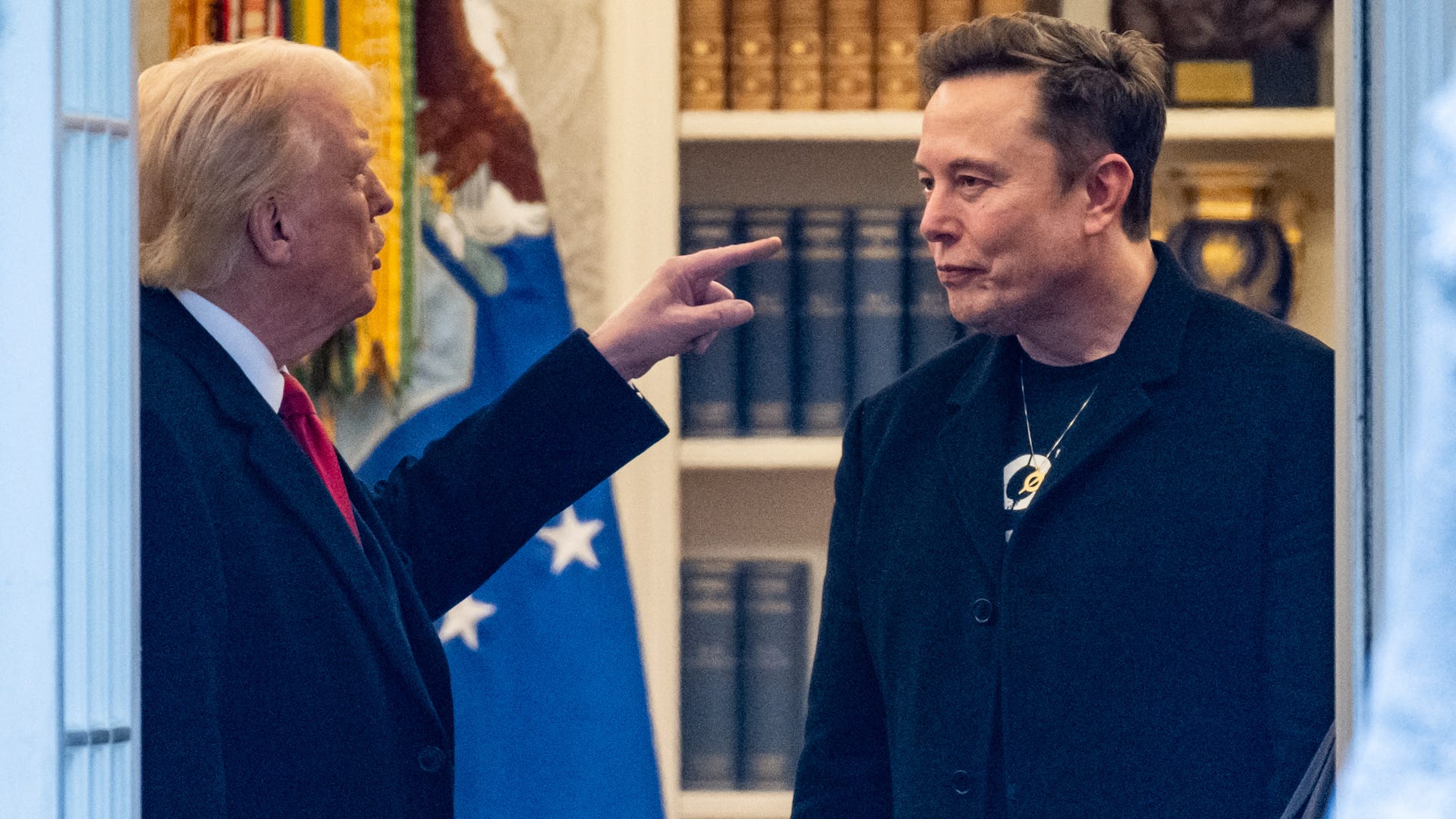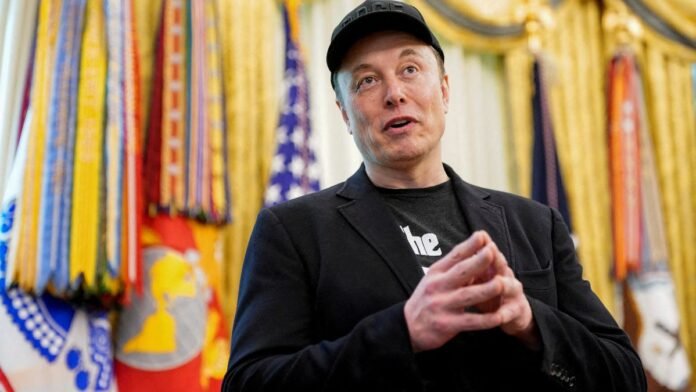The world’s richest man has decided to go to war with Republicans and seems to think creating a third political party is the best way to do that. Is it?

‘America’ Party: Elon Musk announces new political party
Elon Musk announced the “America” party on X. The announcement comes in the heels of his criticism of President Trump.
- A 2024 Gallup poll found that 58% of American adults believe a third political party is needed in the United States.
- Elon Musk announced the formation of the “America Party,” aiming to challenge the existing two-party system.
- Musk’s move has drawn criticism, with some questioning his motives and the viability of a third party.
- Experts suggest the success of a third party depends on candidate recruitment and navigating the complexities of ballot access.
Set aside for a moment the raging egos and MAGA personalities at the heart of the renewed argument about whether America needs a new political party to compete with the Republican and Democratic parties.
One thing we can say for sure: There’s an appetite for just that among Americans.
A Gallup poll released Oct. 1, just 35 days before the 2024 presidential election, in a time of extremely heightened political tension and public awareness, found that 58% of American adults said a third party was needed. Americans had Donald Trump or Kamala Harris to choose from at that moment, and a majority wanted more options.
That polling number has fluctuated over the years, but Gallup has found majority support for the issue in polls going back two decades. But that’s theory. What about practice?
What if the third-party movement at the center of attention now was being spearheaded by one of the most politically toxic people in America? Is Elon Musk, currently viewed unfavorably by 55% of Americans, the best face for the “America Party” he announced on July 5?
Is Elon Musk serious about creating the ‘America Party’?
Musk, the world’s wealthiest person, spent about $290 million to help Trump win a second term as president.
Now they’re spitting social media venom at each other after Musk was ousted from Trump’s administration and then became infuriated by the deficit-busting spending in the president’s new budget bill.
Musk casts his new political party as an attack on the “uniparty,” a common shorthand to suggest that the Republican and Democratic parties are more alike than different, especially when it comes to spending our taxes.
There’s a glaring flaw in that claim ‒ Trump’s One Big Beautiful Bill Act was crafted exclusively by his administration and Republican leaders in Congress. Democrats were locked out of the process and did not vote for the bill, which passed with thin Republican majorities.
But Musk, like Trump, is not the kind of politician who will let reality govern his rhetoric. So, in his framing, they’re all bad guys in Washington, DC, and he’s going to be the new sheriff who cleans up the town.
That’s one way this might go. Another could be that political consultants squeeze Musk’s fortune for as much juice as the America Party can produce, while not having much of an impact. Or, with Musk’s businesses taking serious economic hits from his political combat, he might just talk a big game and then walk away.
This isn’t the first time a third-party threat has been made
Trump, in a long social media post on Sunday, July 6, said Musk was “off the rails” while noting that third parties “have never succeeded in the United States.”
Then why did Trump need a 336-word post at all? He showed us his fear by adding that third parties are effective at causing “Total DISRUPTION & CHAOS” in American politics.
Here’s what disruption and chaos probably looks like to Trump ‒ Musk’s America Party impacts the thin congressional margins, tipping the House and Senate to Democrats, giving them the power of oversight or even impeachment (for a third time) to hold Trump to account.
Ryan Clancy, chief strategist for No Labels, told me that the “initial reaction from the Republicans suggests that they think (Musk) is more of a threat to them.” And he would know.
No Labels, you might remember, was a significant concern for the Democratic Party and its allies in 2024 as the group tried, and eventually failed, to put on the presidential ballot a bipartisan centrist ticket. Will Musk’s America Party be the threat to Republicans that No Labels was to Democrats?
Clancy said it’s too early to say, and that will depend on what kind of candidates Musk recruits.
Musk has suggested that he might “laser-focus on just 2 or 3 Senate seats and 8 to 10 House districts” in the 2026 midterm elections because the House and Senate have “razor-thin legislative margins,” and that it might “be enough to serve as the deciding vote on contentious laws.”
Clancy told me No Labels has not spoken to Musk or anyone close to him about the America Party. But the strategist hopes the new political party would inject a little competition into elections, which could pull some Republicans and Democrats back to the center of the political spectrum.
“I would encourage people to give it a chance, give it some runway, let it breathe a little,” Clancy said. “Let’s see what kind of candidates come around it.”
Would Musk have a path to political victory?
Rahna Epting, executive director of MoveOn, a progressive policy group, spent part of 2024 criticizing No Labels as a potential “spoiler” that could have helped Trump win a second term. She told me that “another party, paid for by billionaires like Elon Musk, is not the answer for this country’s challenges.”
Where Clancy sees potential, Epting sees only vanity and self-interest as motivation for Musk. She noted that Republicans, from Trump on down the ballot, ran last year on making life more affordable for Americans. And she thinks Americans are still looking for solutions like that in the midterms.
The MoveOn leader is just as opposed to the Big Beautiful Bill as Musk is. And she’s just as opposed to his America Party as she was with No Labels.
“No Labels was a tactic without a plausible strategy to win, and I think Elon Musk’s effort is a tactic without a plausible way to win,” Epting said. “And both were in it for themselves and not for the people of this country.”
Clancy estimates that a competitive Senate campaign next will cost “easily nine figures,” while a House seat “can easily be low eight figures.” And then there is the complicated and costly infrastructure of getting on ballots, state by state.
Put another way: Musk might be about to spend some serious money again. But I’m not sure if he can repeat his 2024 success. And it’s worth pointing out that Musk himself no longer sees 2024 as a success.
Follow USA TODAY columnist Chris Brennan on X, formerly known as Twitter: @ByChrisBrennan. Sign up for his weekly newsletter, Translating Politics, here.


























